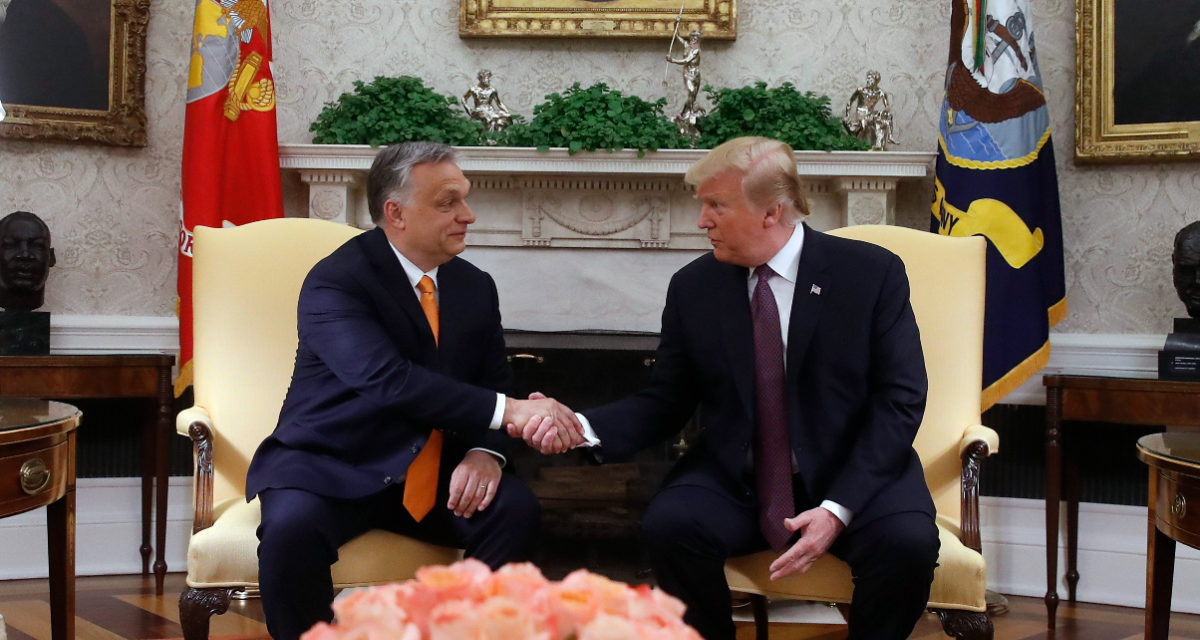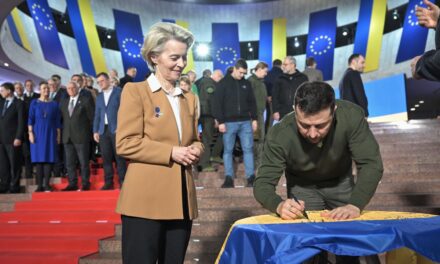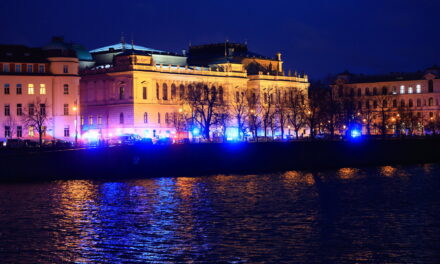During the examined period, the president-elect mentioned the Hungarian prime minister on average every three days, and always in a positive context, much more often than the French President Emmanuel Macron or the Ukrainian President Volodymyr Zelenskyi.
Among the European leaders, Donald Trump referred to Viktor Orbán the most in the year before the US presidential election, a total of 109 times, according to the (quantitative and qualitative) content analysis of .
During the examined period, the president-elect mentioned the Hungarian prime minister on average every three days, and always in a positive context, much more often than the French President Emmanuel Macron or the Ukrainian President Volodymyr Zelenskyi.
Since the election victory of Donald Trump, there has been speculation throughout Europe about who the 47th President of the United States might be the most important contact on the continent. Instead of speculation, let the facts speak: in the last year of the campaign period, the returning president of the United States of America spoke about Viktor Orbán more than the leaders of the large nation states of the European Union. Their analysis points out that Donald Trump treated Viktor Orbán as a privileged person, and the unquestionable victory of the Republican president, in addition to the appreciation of Hungarian-American relations, also indicates that Hungary's role in the global space has strengthened to an unprecedented extent.
Among the politicians examined by the Center for Fundamental Rights, the most frequently mentioned leader was Viktor Orbán, as he was the only one included in the "very frequently cited" category with 109 mentions. The most common adjectives included "strong", "smart", "powerful", i.e. all attributes that are related to the ideal type of a competent leader.
The Hungarian Prime Minister is followed on the virtual podium of the reference list by Emmanuel Macron and Volodymyr Zelenskiy with 30 mentions each in the "more often cited" group. The French head of state has also served as a positive example several times, and in his case, too, the image of a strong statesman emerges from Trump's statements. The Ukrainian president appeared somewhat less positively, mostly as a good negotiator, and Trump described him as a reliable ally of the American military industry. At the same time, the Republican leader, who treats the end of the war as a priority in connection with his person, also expressed his disapproval in many cases in connection with the significant American resources devoted to arming Ukraine.
Giorgia Meloni was the only one in the "preferably not mentioned" category, however, the Italian Prime Minister appeared in a positive context, Trump referred to her as a highly respected leader. The President of the European Commission, Ursula von der Leyen, and the German Chancellor, Olaf Scholz, were classified among the "not mentioned at all" leaders, their role and personality in the president's speeches we examined were negligible.
Based on the data taken into account, it can be said that Viktor Orbán represents the origin of Donald Trump's reference map in Europe, but Emmanuel Macron is also present as a positive example. In the case of Zelensky, we can talk about a business partnership, and it is clear that the new president of the United States wants to end the war in Ukraine as soon as possible instead of inciting it. Regarding Olaf Scholz and Ursula von der Leyen, the numbers reveal their complete weightlessness.
It cannot be called a coincidence that during the election preparations - in March of this year and then in July - Trump met twice personally with Viktor Orbán, who stood by him even before his previous election. The prime minister became a point of reference for the Republican presidential candidate's campaign after last August, in an interview with Tucker Carlson, he praised Trump's foreign policy and expressed hope for his peace-making efforts. On the other hand, most European leaders will cooperate with the elected president only reluctantly, since many of them were very close to the democratic administration and were ready to act according to its whims regarding the war raging between Russia and Ukraine, regardless of the continent's interests.
Politicians such as Ursula von der Leyen are frantically looking for contact with the Trump staff, as they have essentially lost their point of orientation as a result of the ongoing political upheaval in the United States. In contrast, the Hungarian prime minister has always been a stable ally for the republican leader, which is a good basis for the fact that both of them see the traditional values that underpin the greatness and prosperity of the West as a guiding thread, and at the same time as a common opponent for the forces that attack them, and therefore respect each other's principles: America first", and "Hungary is first for us".
This relationship is definitely an advantage for Hungary, since Donald Trump's effort to end the conflict raging in neighboring Ukraine is in itself a very significant step forward for our country. Most of the time, the new president referred to Viktor Orbán in connection with the war, as an important ally who sees him as a key player in the creation of peace, and he himself made efforts to make this goal attainable.
Cover image: MTI/Szilárd Koszticsák













